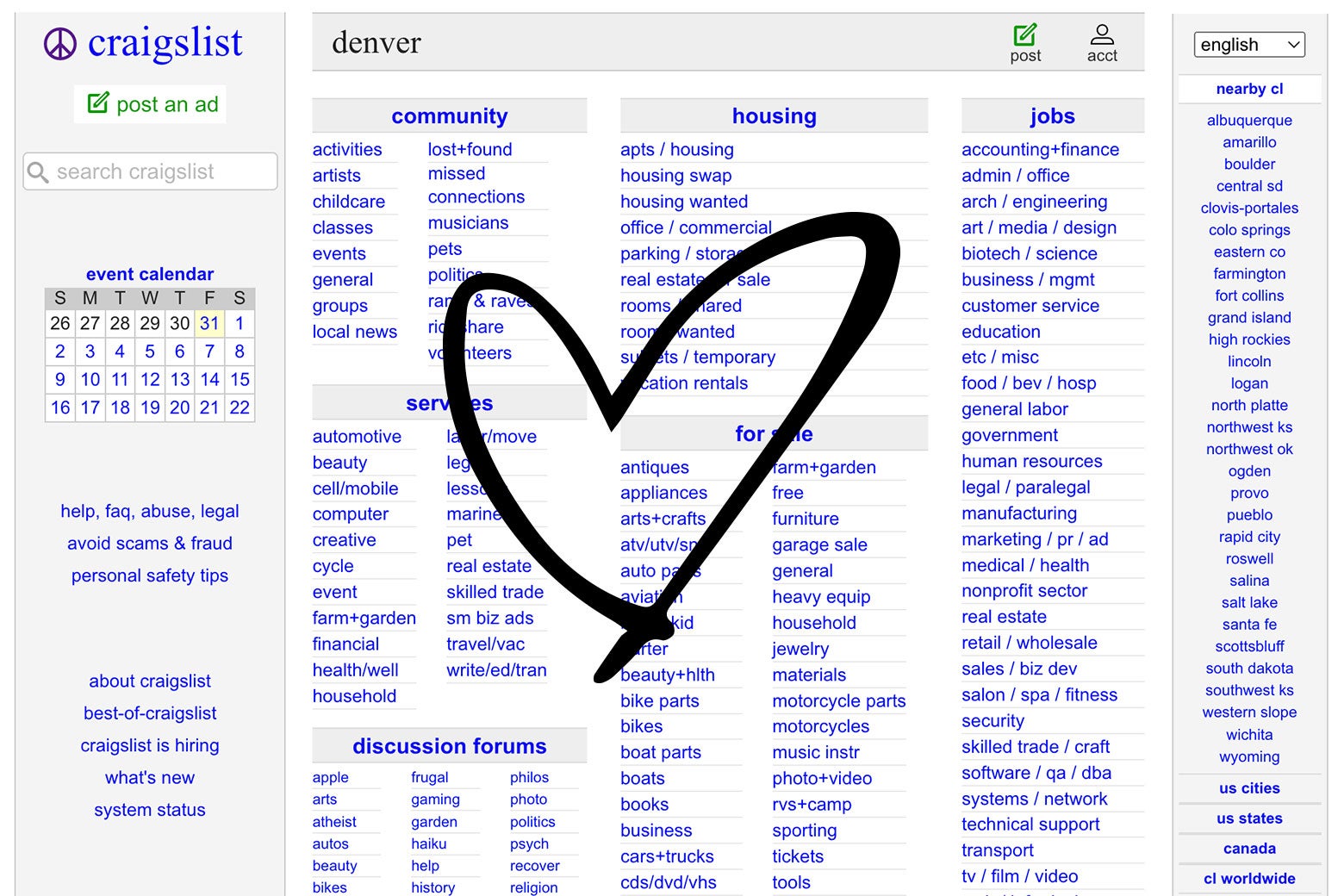The Best Social Media Site Still Looks Like It Was Made in the 1990s

🌈 Abstract
The article discusses how Craigslist, despite its perceived flaws, has remained a popular and enduring online platform that embodies a unique social and cultural ethos. It explores Craigslist's origins, business model, and how it differs from more modern social media platforms in its approach to trust, transparency, and user relationships.
🙋 Q&A
[01] The Greatest Social Media Site Is Craigslist (Yes, Craigslist)
1. What are the key criticisms of Craigslist that have been made over the years?
- Craigslist has been criticized as "underdeveloped" and a "wasteland of hyperlinks" that fails to meet higher standards
- The site's simple functionality and appearance have been seen as missed opportunities by tech experts
2. How has Craigslist managed to remain successful despite these criticisms?
- Craigslist has maintained a relatively simple business model and technology stack, allowing it to remain highly profitable without sophisticated algorithms or advertisements
- Its hands-off approach has allowed it to avoid many of the issues plaguing more modern social media platforms
3. What is the article's perspective on Craigslist's "implicit political philosophy"?
- The article suggests Craigslist's approach is rooted in the "New Communalist" philosophy of the 1970s, which emphasized trust, mutual goodwill, and hyperlocal governance over hierarchies
- This philosophy is seen as a contrast to the "Hobbesian view of human nature" that has driven the development of platforms like Facebook
[02] Craigslist's Approach to Trust and Transparency
1. How does Craigslist's approach to trust and transparency differ from platforms like Facebook?
- Craigslist chose a "different path" from platforms that have sought to enforce user transparency and real-name policies
- This has allowed Craigslist to avoid many of the trust issues plaguing competitors, but has also created different problems like scams and safety concerns
2. What are the pros and cons of Craigslist's hands-off approach to trust and transparency?
- Pro: Craigslist's approach allows users to take risks and trust one another, mirroring the negotiation required in real-world relationships
- Con: Without verification tools or user information, it becomes more difficult to establish trust on the platform
3. How does the article suggest we should view Craigslist's approach in the context of broader societal questions?
- The article poses questions about what it would look like to "care about others, no matter how different they are from us" and how to avoid retreat and move forward together in a bleak world
[03] Craigslist's Cultural Contributions
1. What are some of the unique cultural features of Craigslist highlighted in the article?
- The "missed connections" feature, which allows users to post about fleeting encounters and feelings of yearning
- The "free" section and discussion forums, which provide a sense of whimsy, romance, and profound human expression
2. How does the article suggest Craigslist's cultural contributions differ from more modern social media platforms?
- As "social" networks become more like "virtual malls" or echo chambers, Craigslist's focus on facilitating buying and selling has made it feel like the most "social of all"
- The article suggests Craigslist allows users to keep a pulse on their community in a way that feels more authentic and less curated
3. What is the article's perspective on the tech industry's approach to change and problem-solving?
- The article suggests the tech industry often assumes the market will reveal solutions to societal problems, driven by a belief that change is inherently good
- In the case of Craigslist, the article argues that change may not be necessary, as the platform's unique approach has allowed it to thrive.